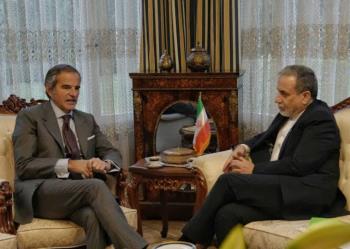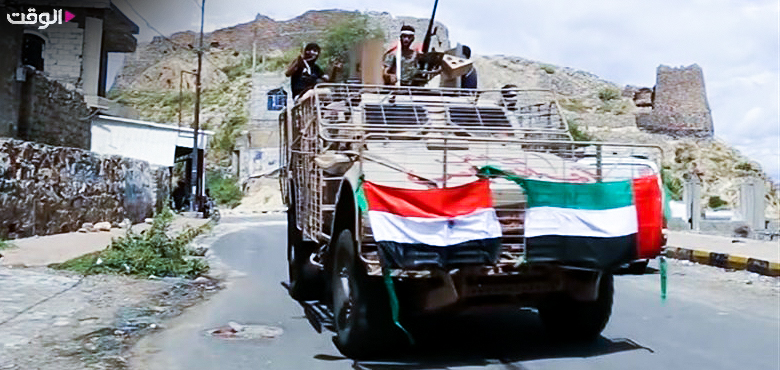Alwaght- The pressure building on the Saudi-Emirati coalition and its Yemeni allies in the war following the battleground triumphs of Ansarullah Movement in various parts of Yemen have caused the Arab alliance to dramatically intensify its air and ground strikes in the recent weeks to reverse the defeats.
What is significant about the new developments is the increase in the direct UAE involvement in the war and possible rethinking of range of "deterrence" attacks by the powerful Ansarullah.
In recent months, Ansarullah has directed its threats to the UAE, the second most important member of the coalition. The latest stance taken by Ansarullah pointed to broadening of UAE range of activities in the war.
"There is a deal between Saudi Arabia and the UAE according to which Saudi Arabia will hand over all the southern provinces of Yemen, including Shabwa, to the UAE in return for Abu Dhabi restoring its full involvement in the war," Mohammed al-Bukhaiti, the member of Ansarullah Political Office, told Al-Araby news network on Thursday.
"Of course, a few years ago, the UAE sought to stop involvement in Yemen invasion," he said, adding: "We gave the UAE a chance and postponed plans of attack deep into thee Emirates. But, unfortunately, the Emirates is escalating the tensions."
Threats to the UAE by Ansarullah during the war are not new and such threats have been made in recent months.
In the final weeks of last year, General Yahya Saree, spokesman for the Yemeni Armed Forces, threatened that if the UAE continued its attacks, it could return the country to the "target circle" designed by the Yemeni army and popular committees.
Earlier, Hisham Sharaf, the foreign minister of the National Salvation Government, addressed the UAE's illegal actions in Yemeni lands and islands, warning that "if you do not leave our lands and islands, the flames of fire will soon reach you."
Support cover after phased exit
In early 2019, the UAE abruptly announced that it planned to end its military intervention in the Yemeni war. On February 9, 2020, five years after the UAE began cooperating with the Saudi-led coalition in the invasion of Yemen, Abu Dhabi Crown Prince and policy czar Mohammed bin Zayed officially announced the completion of the military withdrawal process from Yemen at a ceremony in Zayed Military City.
The UAE is not a big country and its deployable ground force is less than 20,000. About 3,500 Emirati forces were stationed in Yemen, and nearly 3,000 Emirati airmen, sailors, and soldiers were operating in direct support operations off shore and in neighboring areas. This means that about one-sixth of the entire military force of the country was at war at any given moment. That is while the UAE was simultaneously playing a role in other areas of regional rivalry, such as the Libyan crisis. In practice, the continued direct long-term presence in the Yemeni war is beyond the UAE's military might.
Although the UAE considered reducing costs and external pressures in deciding to withdraw from the war, Abu Dhabi will continue to play a role and maintain its influence in Yemen developments by establishing a network of proxy forces, on top of them the Southern Transitional Council (STC), which was founded in May 2017.
By this policy, the UAE could also counter the growing power of the Muslim Brotherhood in Yemen. It is likely that the appointment of General Ali Mohsen al-Ahmar in April 2016 - a major supporter of the Muslim Brotherhood - as a replacement for Vice President Khalid Mahfouz al-Bahah prompted the the Emirati leaders to revise the Yemeni policy.
The UAE now controls several non-governmental armed groups, estimated to include a total of about 90,000 fighters across Yemen, supported by direct training, logistical assistance, and payments. Abu Dhabi has elite "Shabwani and Hadrami forces" in the east, "joint forces" in the west, including the Republican Guard that calls itself the National Resistance, Security Belt in the south, and the Abu Al-Abbas Brigade in the southwest. Since their foundation, these groups have been under operational control of the Emirates, a report by the UN's Group of Eminnet Experts on Yemen said.
The UAE, additionally, is active in several key Yemeni islands. In last June, satellite images showed the UAE building an air base on Perim Island near the Bab-el-Mandeb, a strategic strait connecting the Red Sea to the Gulf of Aden. The five-square-mile island is the key to Bab-el-Mandeb dominance. Abu Dhabi also controls the island of Socotra in the Gulf of Aden.
Both Riyadh and Abu Dhabi are keen to at least make gains from the quagmire of war they have been in since 2015. Acquisition of strategic land may be the only possible gain, a goal that could be the main basis of the behind-the-scenes agreement between Riyadh and Abu Dhabi for the UAE to build up its involvement in the military campaign.
Suicide for saving Saudi Arabia
Although it was totally clear for Ansarullah that the UAE would not end its anti-Yemeni hostility, the movement's leadership has showed it is not interested to expand the range of regional conflict. Still, as the UAE's belligerent actions against Yemen increased, especially as the occupation of important Yemeni islands and efforts to partition the country continued, Ansarullah sent out signals it may reconsider its deterrence operations strategy by sending drones to the skies of Abu Dhabi and Dubai. And it did so last night with a drone attack on Abu Dhabi airport.
Certainly, the shadow of the threat of Ansarullah deterrence operations against Saudi military bases and vital infrastructure is always present also on the UAE. What has so far delayed its attacks is the attitude and war strategy of the Sana'a leaders who have sought to maintain and widen the division in the Saudi-Emirati coalition by focusing the attacks on Saudi Arabia.
In such conditions, Abu Dhabi's futile efforts to return to war swamp not only bring no gains for the Emirates but also make it target of crushing drone, missile, and sea attacks of Ansarullah.



























